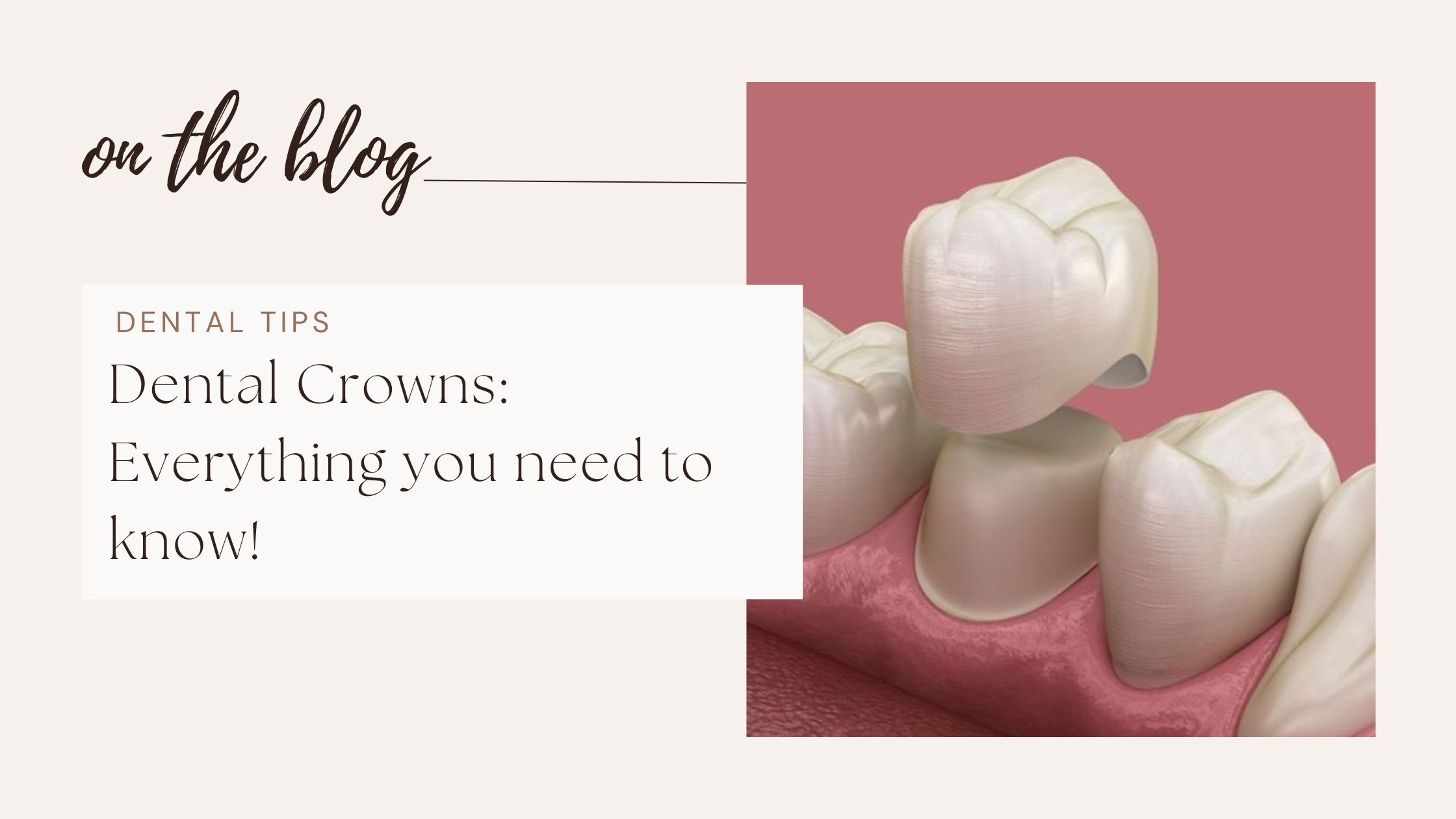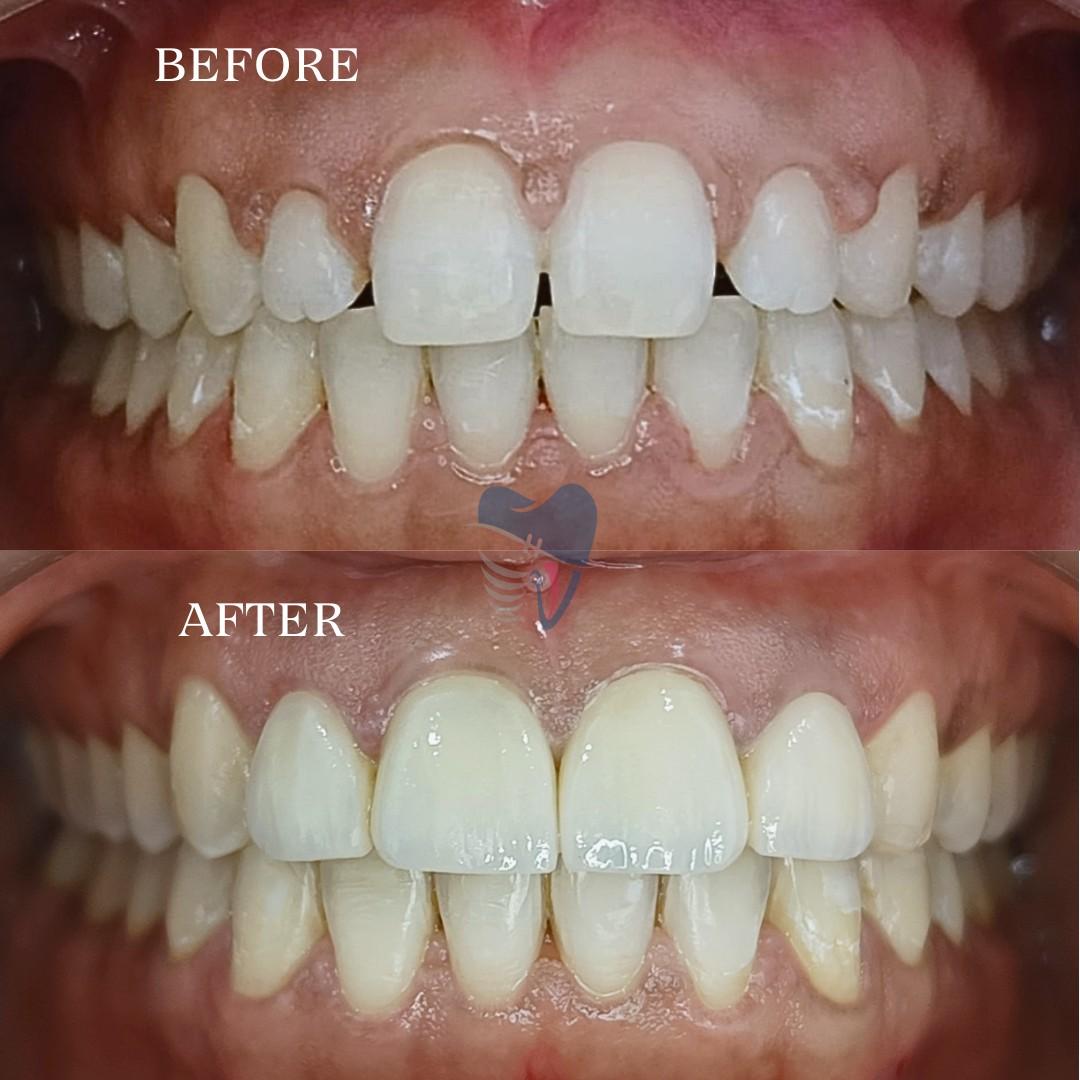
A dental crown is a tooth-shaped cap designed to cover a damaged, broken, or decayed tooth. It is commonly known as a cap. A crown is used to cover root canal treated teeth and dental implants as well. They can be fabricated using a variety of materials, ranging from metals to porcelains.
In this blog we will discuss dental crowns and the situations in which they are needed.
A dental crown is fabricated to snugly fit over a worn out or a damaged tooth, following root canal treatment, or over a dental implant. The purpose of a dental crown is to restore dentition for optimum function and esthetics.
Dental crowns are made from various materials, including metals, porcelain fused to metals, zirconia and resins. They can either be fabricated manually or using CAD/CAM technology.
The lifespan of a dental crown is typically around 15 years, under proper oral care.
A dental crown, or a cap, is needed in scenarios where a natural tooth has been badly damaged. These situations may include:
Some benefits of a dental crown are listed here:
Dental crowns may have some disadvantages, which are considered to be minimal in comparison to the benefits they provide.
Depending on the patient requirement, the dentist may suggest various types of crowns to restore the tooth. Let us discuss some types of dental crowns here:
Metals like gold and palladium, and base metal alloys like nickel-chromium and cobalt-chromium are used to fabricate dental crowns. Metal crowns are known for their strength and durability, and they require minimal removal to tooth structure. They are however, limited to back teeth or molars owing to their unaesthetic metallic appearance.
These crowns combine the aesthetics of porcelain and the strength of metal. They can be made to match the shade of your natural teeth.
However, PFM crowns may show chipping of porcelain over time and expose the metal underneath.

These crowns are made entirely of ceramic materials, like zirconia. It is a tooth-colored ceramic material known for its high strength and esthetics. It can be made to match the natural tooth entirely. Zirconia is known for its high biocompatibility with oral tissues.
It can be fabricated using manual techniques and CAD/CAM technology.
Acrylic crowns are tooth colored caps, they are very soft and may break easily. They are used to temporary restorations between appointments.
With the advent of technology, it is possible for dentists to provide patients with crowns in a single visit. This technique involves making digital impressions, which are used to fabricate crowns using the CAD/CAM technology.
Same-day crowns are not for all cases; consult your dentist to know more.
Dental crowns are a common dental treatment. They can be fabricated using metals, metal alloys, porcelain fused to metal, zirconia and acrylic. CAD/CAM technology has also been very beneficial in fabrication of dental crowns, especially the same day dental crowns. Dental crowns protect broken down and weak teeth, and restore function and esthetics.
It is also important to understand that dental crowns last longer when the oral hygiene is maintained at the optimum by the patient.
At Dhriti Dental, we provide all types of dental crowns including same day crowns, along with other dental services like, scalings, root canal treatments, wisdom tooth extractions, aligners and braces, dental implants and smile design among other treatments.
Book your next dental check-up at Dhriti Dental, the best dental clinic in Hyderabad , today!
With optimum oral care, regular dental check ups and good oral hygiene, dental crowns may last up to 30 years. It is seen that an accurately fit dental crown has a typical lifespan of 15 years.
Brushing twice daily, with a toothpaste recommended by your dentist, regular tooth flossing and regular dental exams and cleanings are ways in which you can care for your dental crown.
It is possible that a dental crown may come off spontaneously, like, while consuming sticky foods, opening cans and bottles with your mouth etc., it is important to keep the crown safely in a box and visit your dentist at the earliest, so that they can re-cement the crown in its place.
No, dental crowns are not painful. Some amount of sensitivity is common after crown placement. Discomfort and pain are not generally associated with crowns.
Dental crowns and caps are interchangeable terms. They both refer to a cap used to cover a damaged tooth. A dental crown is a more correct term in the dental language.